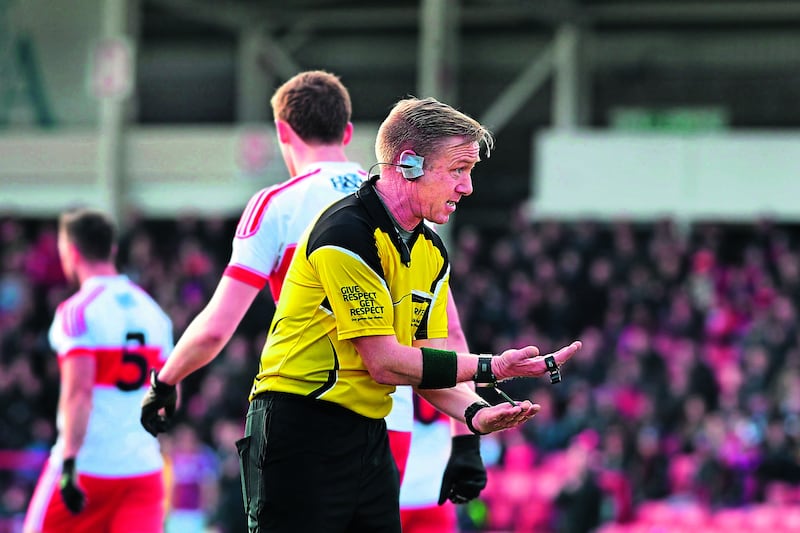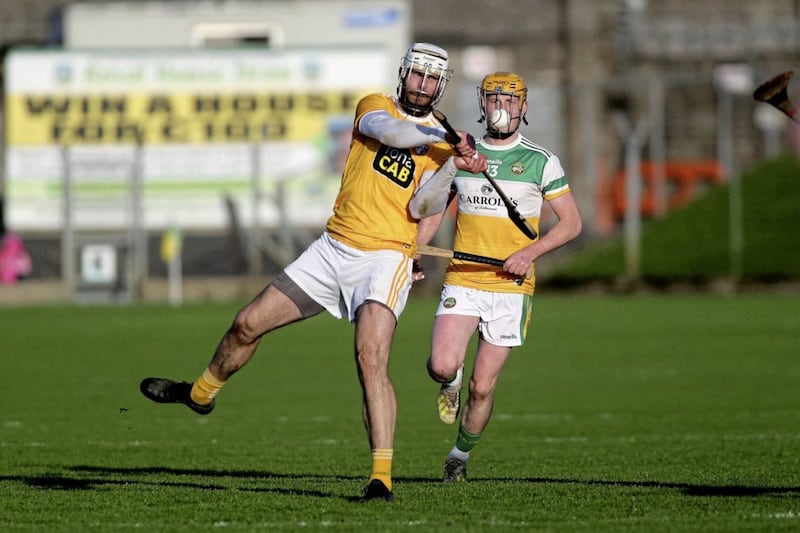THE black card has failed players, match officials and administrators, and should be done away with, a top Tyrone official has claimed.
In a scathing attack on the controversial measure, county secretary Dominic McCaughey said it has clearly not achieved its primary objective – to eradicate cynical fouling from Gaelic football.
“The black card has been a failure for the Association in all respects. It has failed our players, our match officials, our disciplinary administrators and it has failed to diminish or eliminate cynical behaviour in football,” he says in his report to next week’s annual convention.
“Players have suffered unnecessarily by both the application of the black card and by the misapplication of it. There is a clear and significant discrepancy in the severity of the penalty that applies to a player receiving a black card in added time at the end of a game compared with the player who receives it in the opening quarter of a match – this is unfair.”
“Regrettably, there is no evidence to indicate that the black card has been successful in eliminating the deliberate fouls associated with cynical behaviour at both club and county levels.
“One example from the available evidence is quite contrary – that 37 black cards were issued to players in 21 inter-county games during a peak period of Championship activity last summer (July 9 – August 1).”
McCaughey voices his dismay at the incessant rounds of contentious debate which follow big games.
“Perhaps the black card can be set aside now for all deliberate cynical behaviour fouls, in the same way that it has never been applied for the so-called ‘sledging’ infraction, nor for the infraction of remonstrating in an aggressive manner with a match official.
“If it retains its place in the Official Guide then the application of the rule, and the misapplication of the rule, will continue to be the subject of discussion during and after games – rather than the game itself, or the quality of the performance, or the level of skills on display.
“The after-match focus by supporters, players, analysts and the media should always be on the game; it should not be on a rule.”
McCaughey contends that referees have been placed in an impossible situation, tasked with making a judgement based on interpretation of a rule which has given rise to high levels of inconsistency.
“Match officials are almost always placed in an impossible situation in making a determination as to whether the appropriate threshold of deliberateness has been reached in order to merit the imposition of a black card.
“Often a judgement must be made at quite a distance from an incident that has taken place in a period of time, measured in seconds – it is unfair to ask the match officials to do so. There is also a major lack of consistency among referees in their perceptions of what infraction merits a black card.”
And administrators have not been spared the impact of the black card. Disciplinary bodies have been faced with a surge in numbers of appeals related to dismissals.
“Because the referees have made errors of judgement there has been a massive surge in the number of players seeking hearings to have their proposed penalties set aside.
“This created a huge volume of work and meetings for the members of hearings’ committees that resulted in the Association wisely deciding that a hearing for any black card infraction would not be considered until a player has accumulated three orderings off.
“While this change accommodates a reduction in the workload of the administrators it clearly, also, denies a player the opportunity to have the black card infraction rescinded”.








